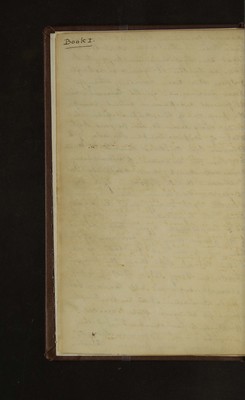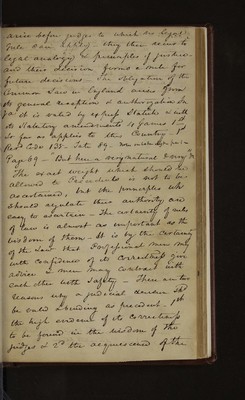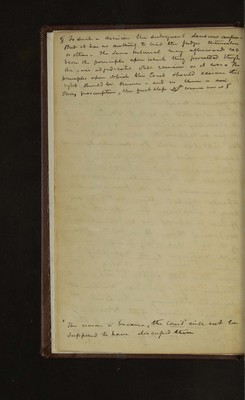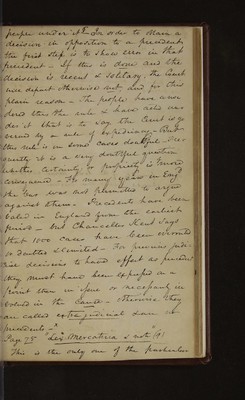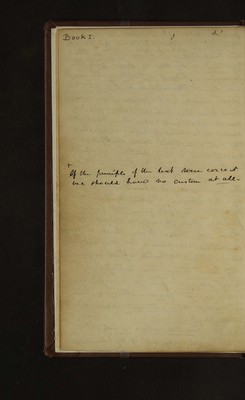Pages
22
arise before judges to which no legal rule can apply, they then recur to legal analogy & principles of justice. And their decision forms a mode for future decisions. The obligation of the Common Law in England arises from its general reflection & authorization. In Va it is valid by express Statute & with its statutory amendments. 4 James 1st. So far as applies to this Country. 1st [Revd]Code 135. Tate 89. Note on Coke Lyt. pa 1. Page 69. "But here a very natural & very" &c. The exact weight which should be allowed to precedents is not to be ascertained, but the principles wh should regulate their authority are easy to ascertain. The certainty of rules of law is almost as important as the wisdom of them. It is by the certainty of the law that Professional men may with confidence of its correctness give advice & men may contract with each other with safety. There are two reasons why a judicial decision shd be valid & binding as precedent. 1st the high evidence of its correctness to be found in the wisdom of the judges & 2d the acquiescence of the
23
§ To such a decision the subsequent decisions conform. But it has no authority to bind the judges themselves or others. The same tribunal may afterwards re— vere the principle uphon which they proceded through the case adjudicated still remains as it was. The principles upon which the Court should exercise this right should be known, and as there is a strong presumption, the first step (...) commence now at §
*The reason is because, the court will not be supposed to have discussed them.
24
people under it §. In order to obtain a decision in opposition to a precedent the first step is to show error in that precedent. If this is done and the decision is recent & solitary, the Court will depart otherwise not; and for this plain reason. The people have consi— dered this the rule & have acted un— der it that is to say the Court is go verned by a rule of expediency. But this rule is in some cases doubtful. Fre— quently it is a very doubtful question whether certainty or propriety is of more consequence. For many years in Engd the bar was not permitted to argue against them. Precedents have been valid in England from the earliest period, but Chancellor Kent says that 1000 cases have been overruled or doubted & limited. For previous judi— cial decisions to have effect as precedent they must have been expressed as a point then in issue necessarily in volved in the cause. Otherwise they are called extrajudicial law not precedents. [*] Page 75 "Lex Mercantoria & note" (9) This is the only one of the particular
25
Book I.
+ If the principle of the bench were correct we should have no custom at all.
